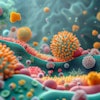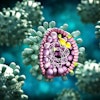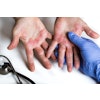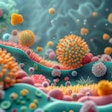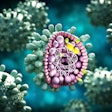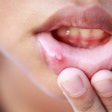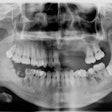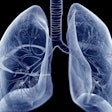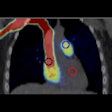
We dentists positively contribute to the health of our patients in many ways. However, I believe we as dentists and dentistry, as a whole, fails the public in several other critical areas.
My intention is to bring to the forefront the weaknesses of our profession so that dental professionals and educators can improve the delivery of the oral and overall health of our patients. I believe we should help our patients understand these failures and aid them in asking intelligent questions to all their healthcare professionals.
 Alvin Danenberg, DDS.
Alvin Danenberg, DDS.3 failures
The three failures involve patient education and communication:
- Not informing patients of potentially toxic elements that are used in dental treatment and their potential consequences in the body
- Not educating patients adequately and in-depth about the obscure and underlying causes of dental diseases
- Not emphasizing the causal relationships between the gut, the mouth, and the overall health of patients
1. Understand potential toxicities
Many dental materials, medicaments, and procedures are used routinely in the dental office. These include methacrylate, amalgams, bisphenol A (BPA), and more. And some of these have been shown to be potentially toxic to human cells. Of course, toxicity usually depends on the dose and the frequency of exposure. But if a toxic element is in the mouth, then its presence could be potentially harmful.
This is a personal issue with me, as I do believe my bone marrow cancer was directly related to my excessive exposure to various toxic elements in dentistry -- especially my continued exposure to mercury and ionizing dental radiation while in dental school and during my early years in practice. Yet, there is no way I can prove this.
2. The obscure causes of dental diseases
“I believe we should help our patients understand these failures.”
Many studies, including an April 2019 study in the Journal of Clinical Periodontology (Vol. 46:4, pp. 481-490), have determined that removing dental plaque by brushing and flossing was not critical to improving oral health as long as diet was adequately supporting health. Specifically, the researchers showed that changing from a diet abundant in high-processed carbohydrates and inflammatory foods to a diet excluding these foods will decrease signs of gum disease.
3. Causal relationships
A lifestyle that is detrimental to health, toxic elements in the environment, toxic substances accumulating in the body, and inflammatory foods are major factors that can damage the gut and create unhealthy gut bacteria (gut dysbiosis). Leakage from a damaged gut into the bloodstream and the lymph fluid can cause systemic chronic inflammation and a compromised immune system. Both systemic chronic inflammation and a compromised immune system can cause havoc in other body tissues, including the mouth.
In the mouth, these may cause an overgrowth of pathological bacteria. Unhealthy food choices will continue to feed the pathological bacteria. Unhealthy bacteria will cause periodontal disease and tooth decay. Dental diseases potentially could affect all other areas in the body, causing a vicious back-and-forth cycle between the mouth, the gut, and other tissues of the body.
We as dentists need to address these issues:
- Inform patients about potential toxicity from dental procedures and only use the most biocompatible materials.
- Learn about the obscure causes of dental diseases.
- Become knowledgeable about causal relationships within the body.
Alvin Danenberg, DDS, has retired from the private practice of periodontics in Bluffton, SC. He continues to be on the faculty of the College of Integrative Medicine and created its integrative periodontal teaching module. He also spent two years as chief of periodontics at Charleston Air Force Base earlier in his career. His website is drdanenberg.com.
The comments and observations expressed herein do not necessarily reflect the opinions of DrBicuspid.com, nor should they be construed as an endorsement or admonishment of any particular idea, vendor, or organization.
